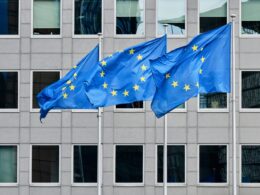Paris 2024 marks a historic first for the Olympic Games, achieving full gender parity on the field of play through equal quota places for male and female athletes, as determined by the International Olympic Committee (IOC).
The IOC’s commitment to gender equality extends beyond the competition, with measures in place to ensure balanced media coverage and to increase female representation in coaching, broadcasting, and sports governance roles.
Gender parity was highlighted at the Paris 2024 Opening Ceremony, with 196 National Olympic Committees (96%) selecting one male and one female athlete to carry their respective country’s flags. This initiative, first introduced in Tokyo 2020, aims to give equal visibility to women athletes. The theme of equality continued with the Olympic oath, taken by French flagbearers Florent Manaudou and Mélina Robert-Michon, and the lighting of the Olympic cauldron by Teddy Riner and Marie-José Pérec.
Notably, it was in the 1900 Games in Paris when women competed for the first time. Of a total of 997 athletes, 22 women competed in five sports: tennis, sailing, croquet, equestrianism and golf.
The sports programme at Paris 2024 features a balanced gender representation, with 28 of 32 sports achieving full gender equality and a competition schedule that includes 152 women’s events, 157 men’s events, and 20 mixed-gender events. Over half of all medal events will be open to female athletes.
“We are happy and proud to celebrate this historic milestone,” said IOC Corporate and Sustainable Development Director Marie Sallois of gender parity on the field of play, adding “This is the result of our strategic roadmap, Olympic Agenda 2020, which clearly positioned gender equality as a priority on and off the field of play, and deliberate action from the IOC and the concerted efforts of the entire Olympic Movement – men and women because gender equality is a team sport.”
Despite progress, female representation among elite coaches remains a challenge. In response, the IOC launched the Women in Sport High-Performance Pathway (WISH) in 2021 from where 100 women have graduated and 10 graduates coaching at Paris 2024. The IOC is also working with International Federations to increase female referees and judges, achieving 50% representation in several sports including tennis, triathlon, canoeing, sailing, and hockey.
The IOC’s commitment extends to governance and leadership positions, with women now making up 42.3% of IOC membership and 46.7% of the Executive Board, up from 21% and 33% respectively in 2013.
Additionally, the women’s marathon, scheduled to take place a day after the men’s marathon for the first time since its Olympic inclusion in 1984, will highlight female athletes before the Closing Ceremony. The event’s route honors the historic Women’s March of 1789. Combat and strength sports will also see a new order, alternating men’s and women’s events based on weight categories to enhance visibility and viewership. Previously, the women’s competitions would be scheduled in the morning and the men’s in the evening when there are typically more viewers.
“There is an opportunity after Paris 2024 for us to come to terms with the change that’s happening in society, and the media needs to embrace it. There’s no longer any reason whatsoever that coverage of women athletes shouldn’t be the same as that of men,” said Yiannis Exarchos, Olympic Broadcasting Services (OBS) CEO.
In Paris 2024, women account for 50% of the 45,000 volunteers, the staff and executive Board of the Paris 2024 Organising Committee are 50/50 gender-balanced, gender parity was achieved among the 10,000 torchbearers/relay participants and the 40,000 spots for the Marathon Pour Tous mass-participation event will also be split equally between men and women.





















